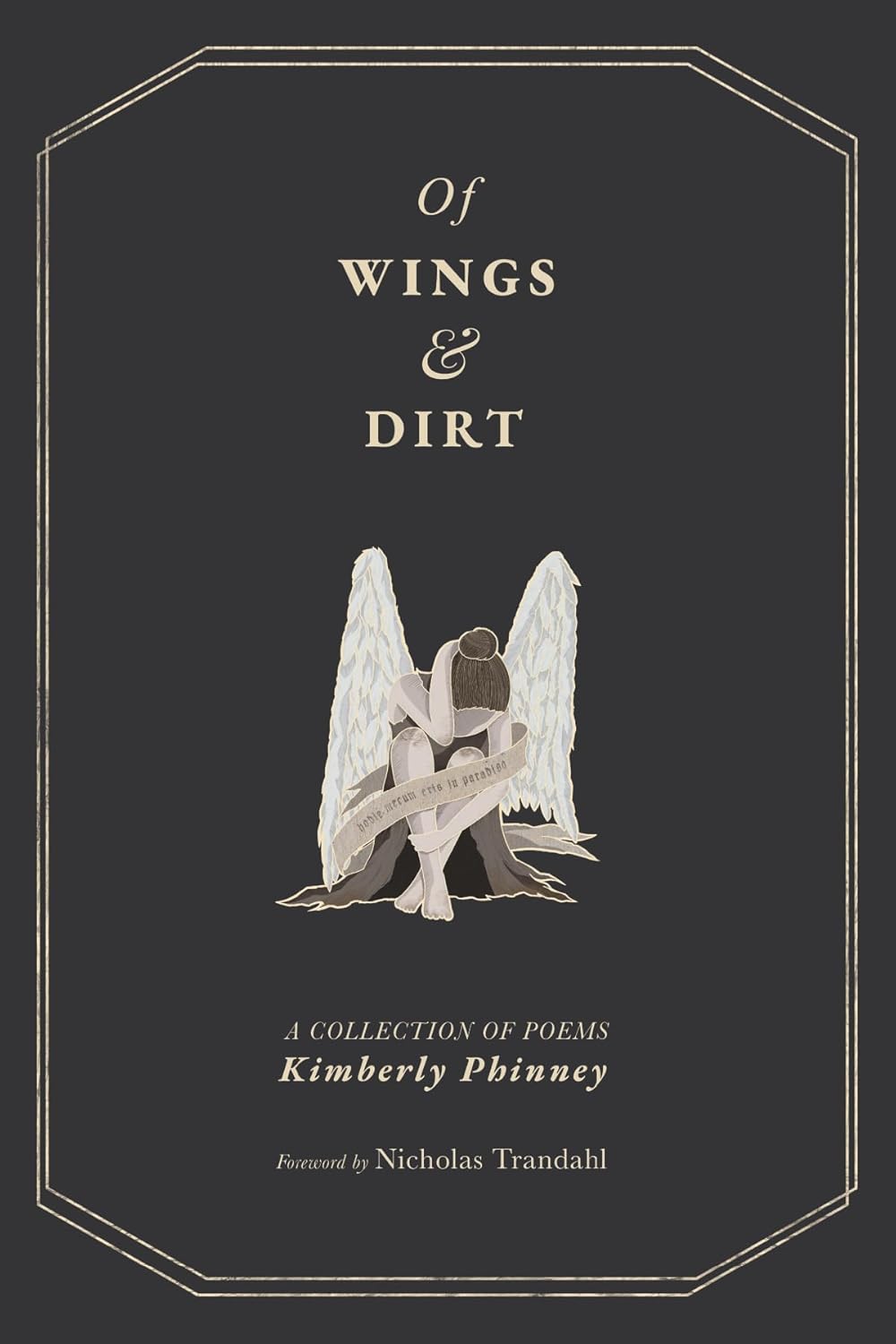Of Wings and Dirt: A Bloodied Saint’s Testimony (Book Review)

Book Review by Zaher Alajlani
It is next to impossible to read Kimberly Phinney’s Of Wings and Dirt without dwelling on existential questions. A raw passion behind her words overwhelms the reader, forcing them to journey into a remarkably talented poet’s soul and their own. In the preface, she tells the reader she is not interested in presenting anything but the truth. As she correctly phrases it, her work is not that of a holier-than-though Christian but a “bloodied saint—made of wings and dirt.”
“Wings” may be a reference to our higher nature or transcend-ability. But the critical question is: What do saints and dirt have in common? The answer is archetypal universality. Saints are the holy men and women who sought Christ by being faithful, charitable, and virtuous. Yet, over time, they became symbols of shared values and feelings deeply rooted in the human psyche. Dirt, the dust of the earth, is what all humans are made of. It is our nature and what we will all be reduced to in this fallen world. Thus, the title itself conjures up primordial emotions and imagery. That is precisely why Kimberly’s poetry is so forceful.
Another hard-hitting aspect of Phinney’s work is her honesty. The latter works in tandem with her lyrical aptitude to create visceral poetry that overcomes the reader but cannot itself be overcome. She captures this rawness in the preface, saying that her poems “flowed out” of her “like pent-up water from a cracked pipe.”
An excellent example of her eclectic, unique lyricism is the opening poem, “A Brutal Love:”
I am brutal
to the roses,
to the day lilies,
and daisies.
To the gardens,
I am brutal and unyielding—
Later in the book, in “Aftermath,” Kimberly crafts a haunting monologue:
so many times you were in hell
you beautiful and starved thing . . .
you insomniac
you neurotic
you crazy heat . . .
In such instances, Kimberly forces the readers to probe deep within and confront their own hell and troubled relationships with themselves.
Kimberly’s brutality, however, doesn’t hinder her from reflecting beautifully on the sculpture of the Theotokos, wondering about the mystery of angels, marveling about her daughter’s innocence, or reminding her reader of the nobility of motherly pursuit. In “Women’s Work,” she describes comforting her child through the night:
And I thought to myself,
deep into my watch—
These are the most important stories
I will ever tell.
These are the most important songs
I will ever sing.
These are the most important prayers
I will ever say.
This is the most important work
I will ever do.
To be here for this tender heart.
To bear witness to her needs.
And to tend to them with all myself.
Notwithstanding that throughout the book one feels as if they are, together with the poetess, caught in the middle of the ocean and tossed around by waves of despair, Kimberly still manages to craft hopeful, nostalgic soliloquies. From her “This Dark Fire Wonder:”
Can we get back?
Back to before broken?
Back before age
and illness and despair
became our bedmates
to smother our dreams
and our youth?
Because if I could
walk this dark-fire wonder back
back to the start
I would
I would
I would.
When the reader puts down Of Wings and Dirt, they will feel exhilarated and cathartic. They will also undoubtedly be impressed by who the author really is. Though there is an overabundance of literary theories whose aim is to decipher the soul of the author, in Kimberly Phinney’s case, there is no need for any fancy critique or pretentious theorizing, for she is, as evident by her gift and beauteous poems, the sum of all the despair, hope, faith, love and doubt we all experience in our lifetime.
Amazon Link: Of Wings and Dirt: A Collection of Poems: Phinney, Kimberly, Trandahl, Nicholas: 9798385211159: Amazon.com: Books
Read more about and from the author: THE WAY BACK TO OURSELVES (thewayback2ourselves.com)